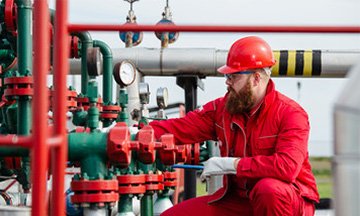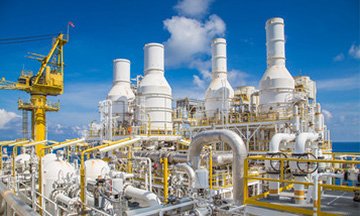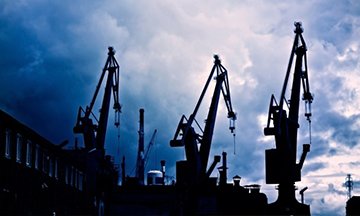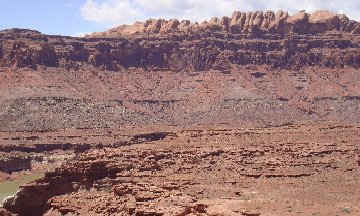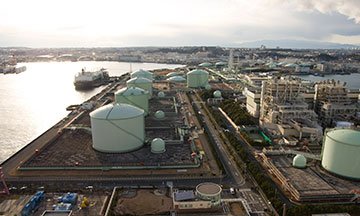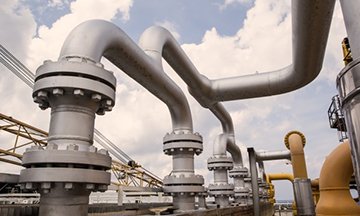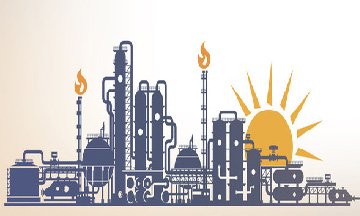Oil and Gas Production Operator Course
| Date | Venue | Duration | Fees | |
|---|---|---|---|---|
| 20 May - 24 May, 2024 | Dubai | 5 Days | $4750 | Register |
| 10 Jun - 14 Jun, 2024 | Singapore | 5 Days | $5695 | Register |
| 24 Jun - 28 Jun, 2024 | Dubai | 5 Days | $4750 | Register |
| 08 Jul - 12 Jul, 2024 | Dubai | 5 Days | $4750 | Register |
| 26 Aug - 28 Aug, 2024 | New York | 3 Days | $4475 | Register |
| 26 Aug - 30 Aug, 2024 | Dubai | 5 Days | $4750 | Register |
| 16 Sep - 20 Sep, 2024 | Dubai | 5 Days | $4750 | Register |
| 09 Oct - 11 Oct, 2024 | Istanbul | 3 Days | $4475 | Register |
| 28 Oct - 01 Nov, 2024 | Dubai | 5 Days | $4750 | Register |
| 11 Nov - 15 Nov, 2024 | Dubai | 5 Days | $4750 | Register |
| 02 Dec - 06 Dec, 2024 | Dubai | 5 Days | $4750 | Register |
Course Overview
What does an oil and gas production operator do?
This course is meant to provide the participants with the knowledge to develop a career in oil and gas production field. This could be either- as operators or production officers. The Zoe certification shall indulge in oil processing methodologies, gas processing techniques, instrumentation, gas and oil production equipment, oil and gas refining equipment, and production techniques. Some of the topics that will be covered include troubleshooting of production machinery, petroleum geology, maintainability of production equipment, and oil and gas production optimisation.
Through the well progressive approach, the skills and knowledge gained shall be expanded to relevant and applicable upstream oil and gas fields and gain the required confidence to scale up to higher levels in the industry. It will also enrich the attendees with the right terminology to be applied in the field when addressing various production issues or formulating policies that will be affecting oil and gas production.
This Zoe course is designed to comprehensively and completely empower the attendees with the necessary knowledge to design and implement safety operations when producing oil and gas in the field. All the material and lectures are meant to empower the attendee with the precise required skills to be the best in the field.
What are the skills of production operator?
Further, the course will include various standard procedures and work processes that are vital to ensure efficient and effective start-up and operation of an oil and gas production plan. All the theoretical lessons will be highly supported by practical exercises or simulators that will demonstrate how production is handled in an oil and gas production plant. Participants will gain hands-on knowledge on gas and oil production that is market-ready.
Course Objectives
The course intends to achieve the following:
- Equip the participants with the knowledge and ability to communicate
- Educate and illuminate on the basics of how various products of petroleum are formed
- Help the participants to understand the importance of hazardous selected area classification
- Teach them how to operate in toxic environments
- Teach the attendees how to read, analyse and interpret instrumentation diagrams on piping and instruments
- Help the attendees understand the operations of a wellhead, manifold, gathering stations, and flow lines
- Equip the participants with the knowledge of how to operate important oil production equipment such as the three-phase separator, various pumps, different compressors, and heat exchangers
- Teach basic and advanced knowledge of fuel gas systems
- Help attendees understand the basic setup of the separator process and how HC behaves in different conditions
- Illustrate the function of ESD systems that are found in a generic oil and gas simulator
- Teach all the required specifications for oil and gas export and all the produced water systems
- Give basic knowledge on how SCADA systems are applied in oil and gas production
- Give a detailed understanding of seawater and their counterpart closed cooling water system
- Give a detailed understanding of how to set up gas conditioning methods (glycol generation and dehydration)
- Teach water filtration, water injection, and de-aeration
Training Methodology
Zoe has various courses in different subjects. However, all the courses, including this one, are delivered by experienced professionals that are relevant in their domain. The course is delivered partly as a classroom session and partly as practical lessons and exercises. All the participants are encouraged to participate fully during sessions to enable role-plays and maximum understanding.
There will be presentations, lectures, and videos to support this course. Zoe follows the Do–Review–Learn–Apply Model as caliberated for all our courses. This type of learning focuses on realtime application.
Organisational Benefits
Organisations that will let their professionals take this course stands to benefit in the following ways:
- Detailed risk assessment and evaluation of all the oil and gas production fields
- Regular training of other employees who did not take up this course by those who took it
- A thorough review of legislation and regulation adherence to ensure the organisations follow the government recommended standards
- Seamless running of oil and gas production processes and refineries by professionally trained employees who have in-depth knowledge of various techniques and methods
- Increase in organisational credibility due to development because of well contained and managed risks that could impact the organisations negatively
- Application of advanced tools to manage oil and gas production processes
- Use of appropriate terminologies when negotiating with stakeholders
Personal Benefits
All the participants who will be taking this course stand to benefit in the following ways:
- Comprehensive and detailed understanding of safety: rules, protection, prevention, fire extinction, and specified instructions in regard to oil and gas production processes where applicable
- Increased knowledge of various production units, equipment operation, equipment identification, and follow-up
- A better understanding of waste water management
- A sense of pride is due to contribution that will be made from applying all the methods and techniques taught in this course
- Enhanced understanding of processes, production characteristic, circuits, and feeds
- Ability to identify operator tasks, take up responsibilities, and manage a production site effectively
- Understanding of all the general required technical information and knowledge
Who Should Attend?
- Project managers who operate in the refinery industries
- Gas plant managers
- Oil production engineers
- Field operators
- Oil refineries managers
- Gas plant technicians
- All professionals interested in expanding their knowledge to oil and gas production
- Battery operators
- Technologists who are working in the oil and gas production field
- Gas field operators
- Oil refineries operators
Course Outline
Module 1: Safety, Environmental issues, and Health
- PPEs (personal protective equipment)
- Basic safety measures
- Hazardous area identification and classification
- Hydrogen sulphide (H2S)
- Golden rules in safety
- Working permits and system
Module 2: Process Operations
- Pumps operations
- Separator handling and best practices
- Valves and troubleshooting techniques
- Heat exchangers and how to handle them
- Wellhead
- Manifold
- Gas and oil production processes
- Storage tanks facilitation and handling
- Piping and instrumentation diagrams
- Compressors
Module 3: Instrumentation and Control
- Flow diagrams
- Level
- Temperature monitoring using SCADA system
- PLC application in controlling production
- Unit measurements
- Basic and advanced instrumentation
- Pressure monitoring and control
Module 4: Production Basic Trainings
- Basic Chemistry notations
- Reactions in Chemistry and what they represent
- Advance vapor equilibria notions and principles
- Fluid flow principles and laws
- Heat transmission techniques
- Physical parameters analysis and monitoring
Module 5: Equipment Handling
- Safety adherence in production plants
- Thermal equipment such as furnaces, boilers, and heat exchangers
- Centrifugal
- Positive displacement in centrifugal pumps
- Steam turbines
- Electric motors
- Pressure vessels description and operation
- Columns
- Drums
- Reactors
Module 6: Oil and Gas Production Process
- Equipment control in the field
- Safety of all the equipment in use
- Operational conditions
- Procedures to follow when handling machines
- Process
- Feeds
- Production characteristics
Module 7: Production Operations
- Gas detection
- Hydrates
- Chemical injection process and methodology
- Metering and instrumentation
- Line heaters
- Process drawing techniques
- Pumping mechanism and methods
Module 8: Production Overview
- Compression techniques
- Gas sweetening
- How to enforce safety
- Mechanical refrigeration
- Why are SCADA (supervisory control and data acquisition) systems very important?
- Equipment
- Leather gloves
- Hard hat
- Protective footwear
- Safety glasses
